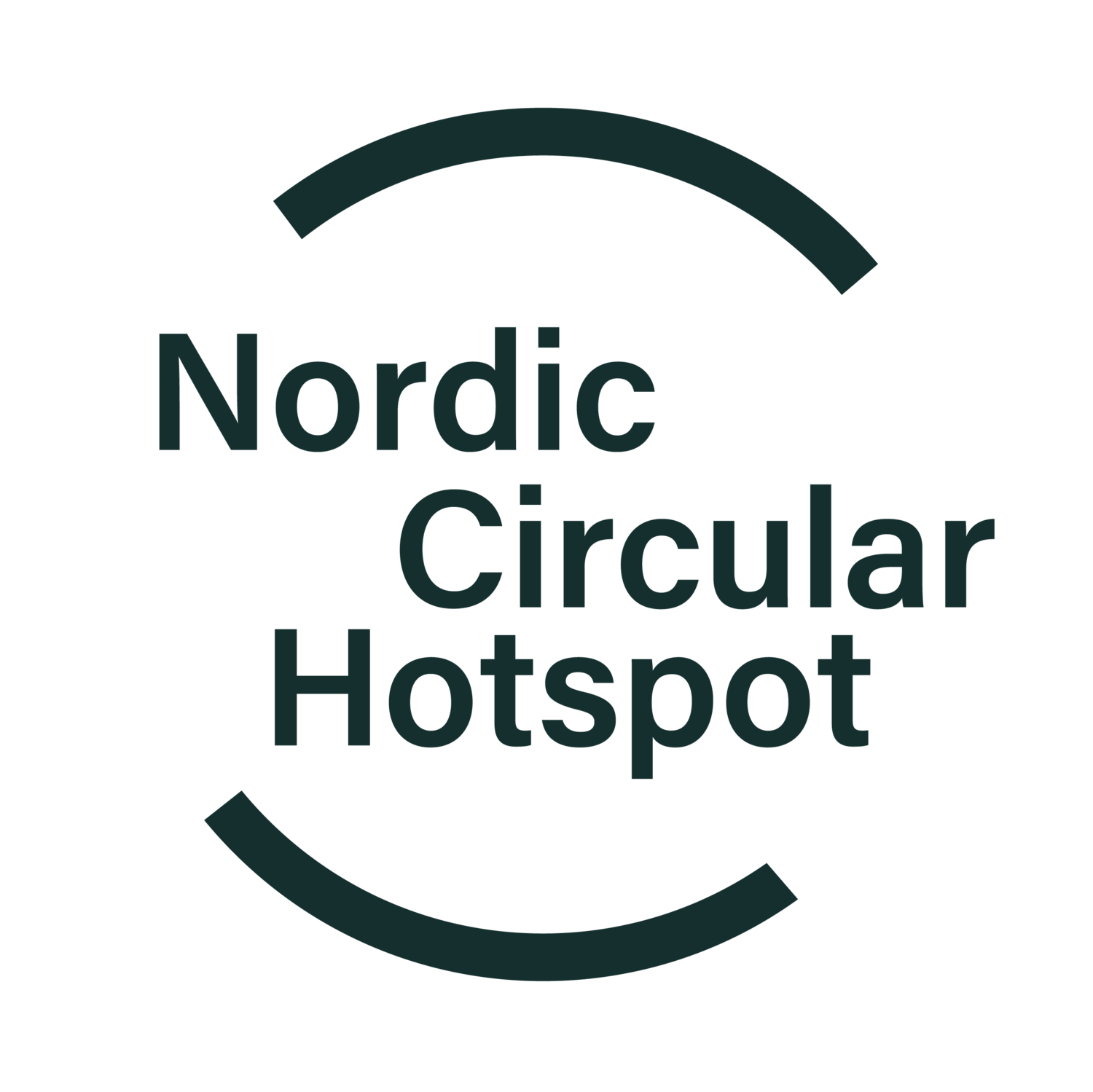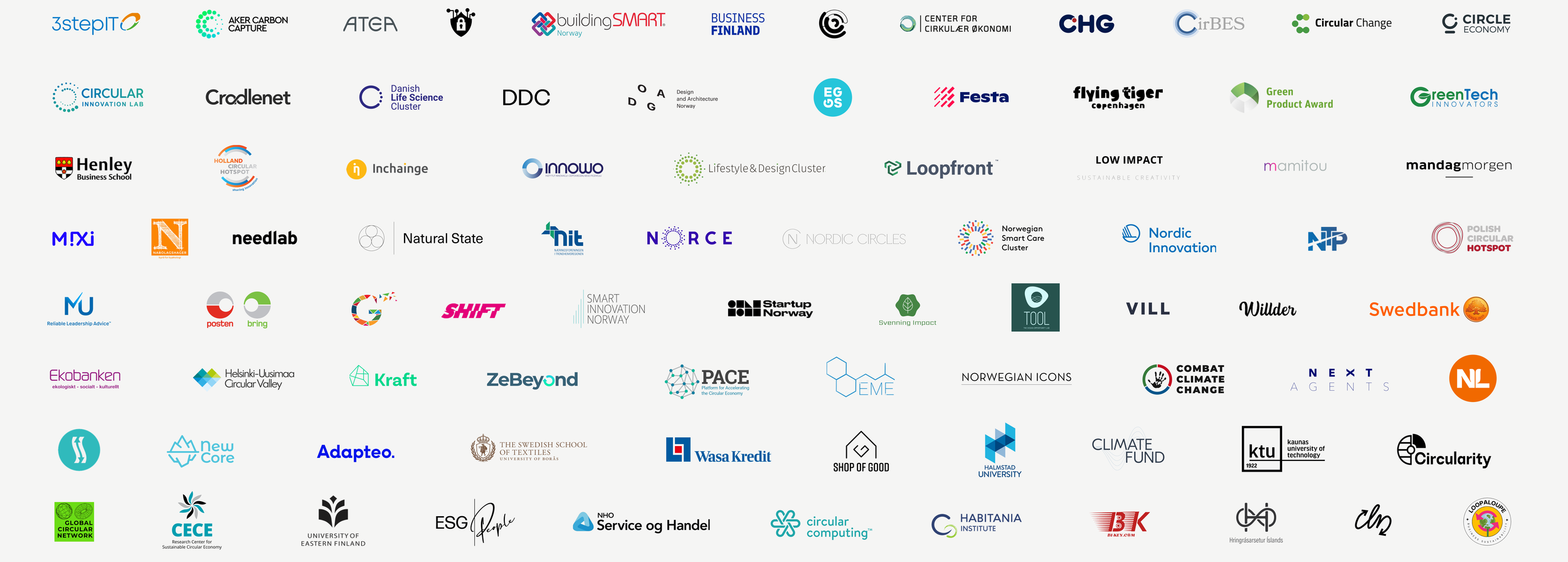NCH Partnership Programme
The Nordic Circular Hotspot Partnership Programme is a collaboration and community designed for a strategic, systematic and efficient circular market transition to secure sustainable development in the Nordics.



Who is the Partner Programme for?
The Nordic Circular Hotspot Partner Programme is designed for a wide range of public and private businesses and organisations, market segments and economic sectors, research institutions, NGOs and public authorities.
Programme Purpose
Build a common market culture and economic language for circular and sustainable value development.
Stimulate collaboration across market segments, economic sectors and regulatory silos.
Provide an accessible overview to help people and organisations navigate and coordinate the Nordic market.
Increase market dynamics, transactions, and investments in circular and sustainable solutions.
Define and align the core circular and sustainable values of the Nordic market.



What you give
EUR 5 000, EUR 2 500 or EUR 1 250
(See price categories here. Academic institutions and public bodies are exempt.)50 in-kind hours
Your visible support for the circular and sustainable transition in the Nordics
Your perspectives, opinions and participation in the Nordic Circular Hotspot activities
Adopt the Partnership Guiding Principles
What you get
A network of dedicated individuals and companies working on the circular economy in the Nordics
Insights, learning, data and knowledge
Business development opportunities
Networking, joint project opportunities, R&D and policymaking initiatives and lobbying
Invites to events, workshops and gatherings (and the opportunity to co-host with us!)
Visibility and promotion on NCH platforms
The chance to work with a committed community of leading experts working on the circular transition
Monthly Partner meetings
Right to participate in the Nordic Circular Transition Groups
Priority access to the Nordic Circular Summit
Partner access to the Nordic Circular Arena
Become a partner

Open source documents
Multi-stakeholder approach
The circular economy is about collaboration and requires all stakeholders to work together to change the entire value sphere from the old, linear and unsustainable state to a new, circular and sustainable state.
The circular transition of a market demands a deep understanding of value chains and the roles of all stakeholders and their connection to the different B2B, B2P and B2C market segments.
We divide the circular market sphere of the Nordics into three categories:
We see market segments and natural resource value chains as the vertical factor.
Market sectors, i.e. public and private economic sectors and industries representing neutral market functions, we identify as the horizontal factor.
The third category is the market context — the Nordic region — including regulatory and governmental organisations.
Focus areas for 2021–2030
Segments, sectors and the Nordic context — examples of partners:
-
• Food and beverage
• Energy and technology
• Ocean and fishery
• City development and construction
• Furniture and fashion
• Forestry and bio-economy
• Manufacturing and production
• Trade and services
• Remanufacturing, repair, retrade and recommerce -
• Innovation, R&D and competence
• Education, academia and research
• Digital, data, AI and technology
• Consumer behaviour
• Design, architecture and engineering
• Culture, anthropology and arts
• Communication and public relations
• Media and entertainment
• Renovation and recycling
• Logistics and transportation
• Finance, funding and banking
• New economic languages, accounting and auditing -
• Nordic countries: DK, FIN, IS, NO, SE
• Local-to-national market cultures
• The Nordics and (bi)lateral systems
• EU and interregional
• International / global
• Regulatory and governance




